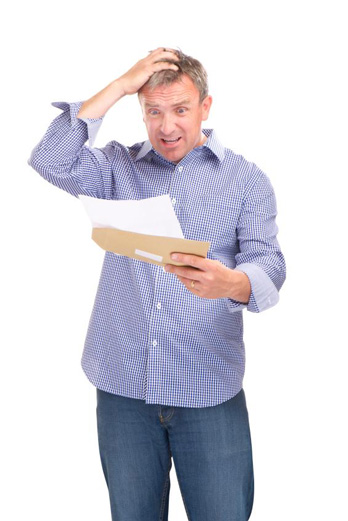 As many of our clients are well aware, whether it’s job-loss or a medical emergency, financial disaster is often a result or unforeseeable bad luck. And when bad luck strikes during a Chapter 13 bankruptcy payment plan, hope can seem lost. When defaulting on a Chapter 13 bankruptcy payment, a case can be dismissed (unsuccessfully closed). Should a case be dismissed, creditors are free to start the debt collection process again as if bankruptcy was never involved. The good news is, the bankruptcy court is well aware of life’s unpleasant surprises, and offers quite a lot of flexibility to those in need.
As many of our clients are well aware, whether it’s job-loss or a medical emergency, financial disaster is often a result or unforeseeable bad luck. And when bad luck strikes during a Chapter 13 bankruptcy payment plan, hope can seem lost. When defaulting on a Chapter 13 bankruptcy payment, a case can be dismissed (unsuccessfully closed). Should a case be dismissed, creditors are free to start the debt collection process again as if bankruptcy was never involved. The good news is, the bankruptcy court is well aware of life’s unpleasant surprises, and offers quite a lot of flexibility to those in need.
It is important to understand that payments should not be ignored, and missing a payment is still a serious action. Speak with your attorney if there are changes in your ability to make payment.
Conversion
One option is to change the bankruptcy from a Chapter 13 to a Chapter 7. The debtor may be allowed to convert to Chapter 7. If the debtor’s request to convert is accepted, the case will be treated like a Chapter 7, which make jeopardize property if not properly exempted, so again: it’s important to speak with your attorney before doing this. However, this may be a good option if a Chapter 13 was filed to catch up on mortgage payments or prevent a foreclosure, so if the immediate threat is no longer an issue, a Chapter 7 could be a great alternative.
Payment Modification
Another option is to change the Chapter 13 payment plan. Options for changing it can be quite diverse, such as adjusting the payment dates, reducing the monthly installments, or even lengthening the whole plan. However, there are several limitations to this alternative. For example, not extending the plan’s length for five years from your first payment. However, if you suffered a decrease in income, the monthly payment amount can sometimes be altered. This process includes a motion to change the plan, which is extensively reviewed by your attorney, Chapter 13 trustee as well as the involved creditors.
Voluntary Dismissal
The final option is the voluntary dismissal - this option is available at any time. To continue the previous example of catching up on a mortgage or simply preventing a foreclosure, if the individual is capable of continuing to pay down their debts without a bankruptcy plan, he or she may back out of the bankruptcy. By selecting voluntary dismissal, the debtor is no longer obliged to make payments, but this also prevents a debtor from receiving a discharge of their debts, and they will have to pay off the debts themselves.
Weigh Your Options
Should you have questions about Chapter 13 or want to consider how to eliminate debt from your life, call a firm that focuses entirely on Chapter 7 and 13 bankruptcies. Lincoln Law can help you down the path to financial freedom. For more information, call Lincoln Law at 800-404-0018 for a free consultation today.

